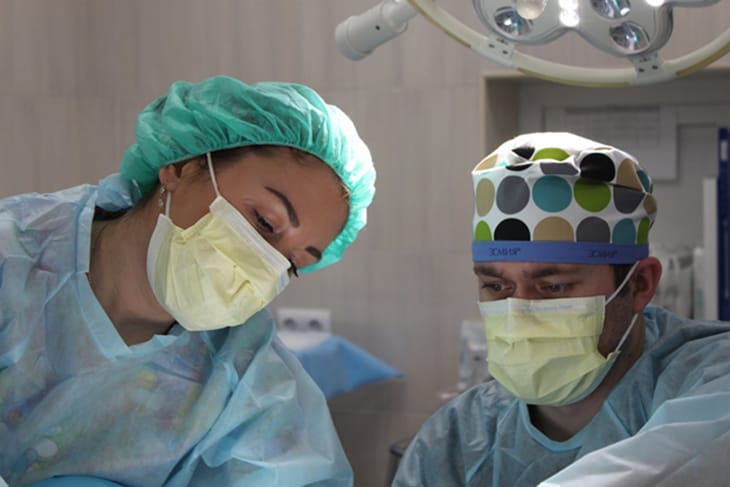
Source: https://www.pexels.com
Maybe you are still deciding if cosmetic surgery is the right choice for you. Or maybe you know exactly what procedure you want to perform or what results you want to achieve. Either way, the most important decision you will make will be to choose the right cosmetic surgeon to achieve your dreams. Make sure you make a decision that makes the most sense, and above all, do your homework in advance, and find the doctor that best suits you.
Aestheticon provides you with 5 tips, which will guide you with your decision of which surgeon to select.
1. Ask for References
Have your friends or family have undergone plastic surgery procedures? If so, ask them about their experiences. If you don’t know anyone who has gotten under the beauty knife, research the clinic and the doctor who will do the procedure on the web. Ask the online community for their opinions or research the doctor’s social networks to see what their former clients say.
2. Investigate the credentials of the plastic surgeon
It is essential that the specialist is part of the scientific society that groups them all. This guarantees that he/she complies with the studies and accreditations necessary to work. The most important associations are the American Society of Aesthetic Plastic Surgery (ASAPS), the International Society of Aesthetic Plastic Surgery (ISAPS), the American Society of Plastic Surgeons (ASPS), the American Rhinoplasty Society. The qualified, competent and certified Plastic Surgeon is the one who has the titles of:
- Surgeon
- General Surgery Specialist
- Specialist in Aesthetic and Reconstructive Plastic Surgery.
All this proves that the doctor has been prepared and trained in the specialty of General Surgery, a prerequisite in all countries to access the Sub-specialty of Reconstructive and Aesthetic Plastic Surgery.

Source: https://www.pexels.com
3. Consider the experience of the plastic surgeon
Experience matters when you are considering plastic surgery. The more experience a plastic surgeon has with a condition or procedure, the better the results. This experience allows the plastic surgeon to prevent surgical complications and recognize them quickly if they occur. Ask how many patients with your specific condition the plastic surgeon has treated. If you need a specific procedure, ask how many such procedures the surgeon has performed and the rates of complications he has encountered.
4. Exceptional results
When most people think of plastic surgery, they think of the results they expect, but not all plastic surgery stories end well. If you have ensured that your potential surgeon has the experience, you are on the path to choose the right doctor, but he or she must also produce exceptional results.
Most plastic surgeons keep a “before and after” photo file that can prove their work. You can always look for this portfolio to help you in deciding.
5. Price is important
If the price seems too good to be true, it probably is. Cheap plastic surgery can be very expensive if revisions are necessary or complications arise. While the low price of the label or some Groupon agreement may be attractive, the reasons behind the low advertising prices can be worrisome:
- The quoted price could exclude other fees or costs after the procedure.
- The installation where the procedure is performed may be outdated and does not comply with the appropriate sanitary regulations.
- The surgeon may be using expired tools or implants.
- The surgeon may lack experience or still be a resident.
- The surgeon is desperate in search of new patients.
Therefore, it is always recommended that the plastic surgeon examine you before you can determine a cost. Because without knowing the case of the patient, it is not possible to determine a cost. Remember that each patient is different, and although the procedure is the same, each person has different needs.
Make sure the doctor who does the evaluation is the same plastic surgeon who will perform the surgery. And in the same consultation, ask all the necessary questions regarding the procedure, as well as the surgeon’s studies and certifications.









































